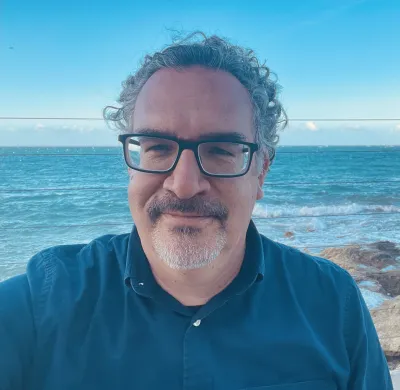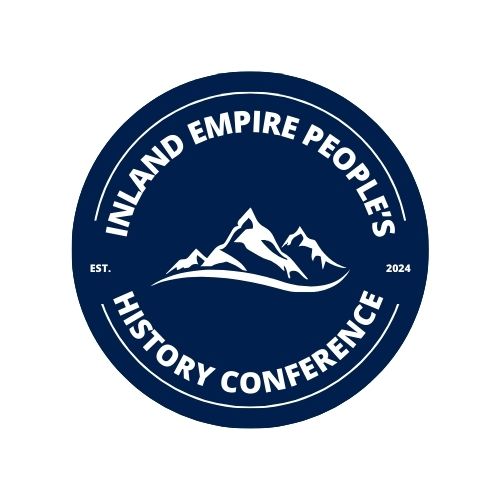
Jose Munoz
Contact
Bio

Dr. José Muñoz graduated with a PhD in Sociology from Stony Brook University. After several years working as contingent faculty in the CSU system, he joined the Department of Sociology in 2011. Along with attention to first-generation scholars, José’s other research foci include inequalities and attrition in science, technology, engineering, and mathematics education, civil rights, labor, and global social movements and non-governmental organizations. He is a co-PI on an NSF S-STEM ($2.5 million award) Creating Pathways to Computing Careers through Experiential and Engaged Learning project with colleagues in Computer Science. From 2021-2022, José was a co-PI on an NSF HSI grant titled “Exploring the hidden realities of contingent Latinx faculty in STEM”. José is key personnel on a five-year $2,700,000 U.S. Department of Education Grant Promoting Postbaccalaureate Opportunities for Hispanic Americans. The project team led by Caroline Vickers (PI) will create Inclusive Pathways to Allied Health Professions. José's collaborative work appeared in Sociology of Education, Socius: Sociological Research for a Dynamic World, Journal of Latinos and Education, Journal of Higher Education Management, and TRAILS. Check out all of my scholarship here Google Scholar. Most recently, José was elected Chair-Elect by the American Sociological Association's Latina/o Sociology section. He will serve a three-year term.
Dr. José Muñoz joined the CSU Hispanic-Serving Institution Action Research Network in 2024.
 The HSI Action Research Network, an initiative fostering collaboration and innovation across eight CSU campuses: San Bernardino, Channel Islands, East Bay, Humboldt, Monterey Bay, Sacramento, San Marcos, and Northridge.
The HSI Action Research Network, an initiative fostering collaboration and innovation across eight CSU campuses: San Bernardino, Channel Islands, East Bay, Humboldt, Monterey Bay, Sacramento, San Marcos, and Northridge.
With Latine/o/a students representing 50.1% of the CSU student body and the CSU awarding more than half of all bachelor’s degrees earned by Latine/o/a students in California, the system is pivotal in advancing educational opportunities and equity. The CSU HSI Action Research Network, launched in 2023 with support from the College Futures Foundation, is an independent collaboration addressing how CSU campuses can go beyond enrollment to create transformative outcomes for Latine/o/a students.
Using participatory action research, the network examines current HSI practices on each campus, identifies effective strategies, and develops innovative approaches to foster institutional transformation. By engaging faculty, staff, and student stakeholders, the network aims to promote the academic, personal, and community success of Latine/o/a students.

On May 3, 2025, the second annual Inland Empire People’s History Conference was held. Over two hundred participants were in attendance.2nd annual IE People’s History Conference brings 200 to campus | CSUSB News | CSUSB
2nd Year of The Inland Empire People's History Conference (1) (2).pdf
2025 INLAND EMPIRE PEOPLE’S HISTORY CONFERENCE PROGRAMandbook Booklet (21).pdf
Features
CSUSB recognizes first-generation students and alumni during First-Generation College Celebration
CSUSB awarded a $2.5 million grant to create STEM scholarships in computer science and engineering.
Inside CSUSB article about my work on campus.
CSUSB Sociology Professor Institutes "Homegrown" Experiences Into His Teaching
CSUSB professor earns NSF grant to explore realities of Latinx faculty in STEM.
Task Force on First-Generation and Working-Class Persons in Sociology
Working-Class Perspectives | Commentary on Working-Class Culture, Education, and Politics.
Education
Ph.D., State University of New York at Stony Brook, 2008
M.A., California State University at Dominguez Hills, 1998
B.A., University of California at Irvine, 1995

Courses/Teaching
Fun facts
Famous People with Sociology Degrees
Teaching Sociology
Podcasts
Merlot course content
Munoz - Sociology 590 Globalization and Social Movements (merlot.org)
Specialization
Invited to serve the following initiatives and programs.
Advisory Committee, Strategic Planning Task Force (2023-2028)